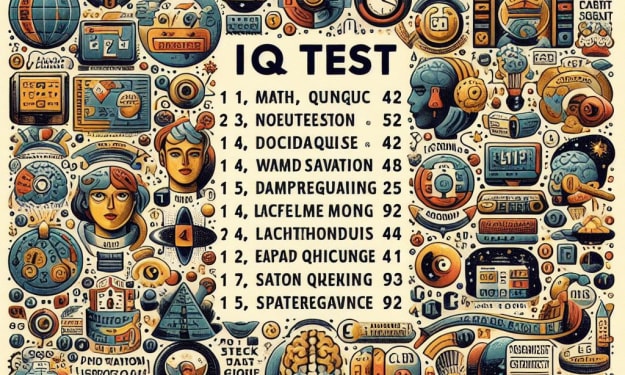What Areas Are Tested In An IQ Test?
What areas are tested in an IQ test?

When it comes to evaluating cognitive abilities, IQ tests have been a subject of curiosity and debate for many years. Understanding what areas are tested in an IQ test and their implications can provide invaluable insights into cognitive assessment. In this comprehensive blog post, we will delve into the concept of IQ, the areas assessed in an IQ test, and the broader context surrounding IQ testing. Our goal is to provide clear, factual, and balanced information for the general public, shedding light on this frequently discussed topic.
What is IQ and How is it Measured?
IQ, or intelligence quotient, is an indicator of cognitive abilities and potential. It is determined through standardized tests that assess various cognitive domains, including logical reasoning, problem-solving, and memory. These tests yield IQ scores, which allow for comparisons of an individual's cognitive abilities with those of others in the same age group.
There are several IQ tests available, with the Stanford-Binet Intelligence Scale and the Wechsler Adult Intelligence Scale being the most commonly used. To take an IQ test, individuals usually seek out a qualified administrator such as a psychologist or educational professional. Tests can be administered in person or online, but it is crucial to verify the legitimacy and reputation of the test provider.
Areas Assessed in an IQ Test
IQ tests evaluate a range of cognitive domains that collectively contribute to an individual's intellectual potential. Some of the key areas commonly tested in IQ assessments include:
Verbal Comprehension: This component gauges an individual's ability to understand and use language effectively. It assesses skills such as vocabulary, reading comprehension, verbal reasoning, and verbal fluency.
Visual-Spatial Abilities: This domain evaluates an individual's capacity to perceive and mentally manipulate visual information. Tasks may involve assembling objects, navigating in space, recognizing patterns, and understanding spatial relationships.
Working Memory: Working memory refers to the ability to hold and manipulate information temporarily. IQ tests assess this skill through tasks that require simultaneously holding and processing information, like remembering a series of numbers and performing calculations with them.
Processing Speed: This area measures an individual's speed in processing and responding to information. It involves tasks that demand quick decision-making and mental processing, such as identifying patterns or symbols within a limited timeframe.
Fluid Reasoning: Fluid reasoning assesses an individual's ability to solve novel problems, think abstractly, and identify logical patterns. It encompasses tasks that require flexible thinking, deductive reasoning, and problem-solving skills.
Quantitative Reasoning: This domain evaluates an individual's mathematical and numerical abilities. It includes tasks that assess mathematical reasoning, numerical operations, and problem-solving within numerical contexts.
Memory: Memory is a fundamental component of cognitive functioning. IQ tests assess various memory systems, such as short-term memory, long-term memory, and working memory.
Executive Functioning: Executive functioning encompasses a set of cognitive processes that involve planning, organization, attention control, and inhibition. IQ tests frequently incorporate tasks that measure these executive functions.
It is worth noting that different IQ tests may emphasize different areas to varying degrees. The specific combination and weighting of these cognitive domains can vary depending on the test used. Additionally, some IQ tests may include additional subtests or evaluation areas not covered in this list.
While IQ tests offer valuable insights into cognitive abilities, it is important to remember that they do not encompass the entirety of human intelligence. Factors like emotional intelligence, creativity, and social skills also play crucial roles in an individual's overall intellectual profile and success in life. These aspects of intelligence may not be directly assessed in traditional IQ tests. Therefore, it is crucial to consider a broader perspective when evaluating an individual's intellectual abilities.
Conclusion:
IQ tests evaluate a range of cognitive abilities that collectively contribute to an individual's intellectual potential. Areas such as verbal comprehension, visual-spatial abilities, working memory, processing speed, fluid reasoning, quantitative reasoning, memory, and executive functioning are commonly assessed in IQ tests. Nevertheless, it is important to recognize that IQ tests provide a limited view of intelligence and should be considered alongside other factors that contribute to an individual's overall intellectual profile. By understanding the areas tested in an IQ test and acknowledging their limitations, we can better appreciate the value and relevance of cognitive assessments in our society.
About the Creator
IQ Metrics
IQMetrics.org is a comprehensive platform offering insightful resources on IQ testing, assessments, and understanding intelligence metrics.
http://iqmetrics.org






Comments
There are no comments for this story
Be the first to respond and start the conversation.